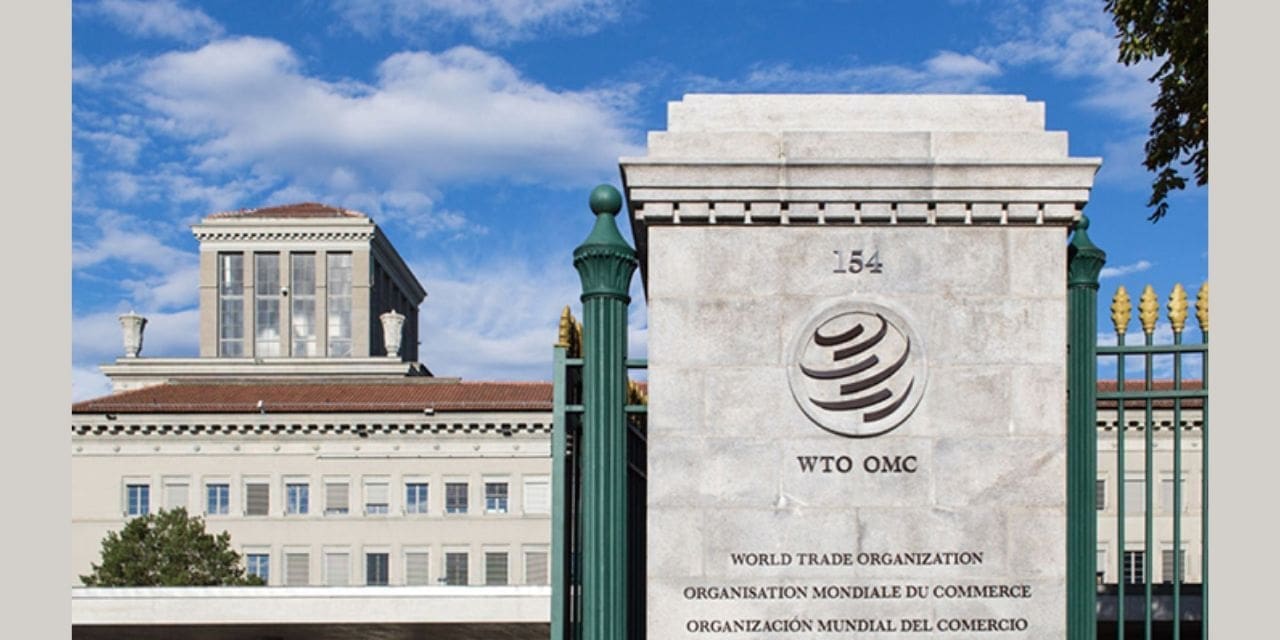The upcoming two-day meeting, scheduled for October 23, will be attended by Sunil Barthwal, the Commerce Secretary. The conference will occur at the Geneva World Trade Organization (WTO) headquarters. Its primary objective is to address and resolve significant global trade issues by providing the required political impetus.
The meeting scheduled for next week precedes the 13th ministerial conference (MC13) of the World Trade Organization (WTO), which is set to take place in Abu Dhabi in February 2024. The event will witness the involvement of high-ranking government officials representing all member nations of the World Trade Organization (WTO).
India’s foremost objective will be to advocate for a consensus on a lasting resolution regarding public stockholding to ensure food security. According to government officials, there will be a significant emphasis on reforms within the World Trade Organization (WTO).
The forthcoming senior officials’ meeting will serve as a platform to assess the current status and evaluate the challenges, gaps, and opportunities that lie ahead. According to a statement released by the World Trade Organization (WTO) in July, WTO Director General Ngozi Okonjo-Iweala urged government officials based in capital cities to approach the upcoming MC13 conference in Geneva with a pragmatic understanding of feasible outcomes rather than reiterating well-established stances.
Priorities
In conjunction with a coalition of developing nations, India aims to pursue a lasting resolution regarding public stockholding, incorporating more robust provisions than those outlined in the 2013 Bali peace clause to protect the welfare of millions of individuals afflicted by hunger.
According to officials, although the peace clause proposal has garnered support from approximately 80 developing member nations at the World Trade Organization (WTO), certain members, such as the European Union (EU) and Brazil, have associated the peace clause with requirements about export performance and the value of agricultural production.
Establishing a lasting resolution is of utmost importance due to the concerns raised by member nations of the World Trade Organization (WTO) regarding India’s minimum support price (MSP) initiative for food grains, specifically rice. This subsidy has exceeded the recommended threshold outlined in trade regulations on three occasions. India has utilized the ‘peace clause’ following World Trade Organization (WTO) regulations to safeguard its food procurement program from potential repercussions by member countries if the prescribed limit is exceeded.
Another area of focus relates to reforms within the World Trade Organization (WTO). The outcome document of the previous ministerial conference expressed a commitment to undertake the essential reforms of the World Trade Organization (WTO) while reiterating the fundamental principles upon which the global trade organization is built. Additionally, it pledged to revitalize the dispute settlement body by 2024.
In May, India submitted a proposal titled “30 for 30” to enhance the operational efficiency of different committees within the World Trade Organization (WTO). India has put forth a set of 30 proposed reforms or modifications in commemoration of the 30th anniversary of the establishment of the World Trade Organization (WTO) on December 24, 2024.
India stated in its submission that although discussions regarding the broader agenda for reforming the World Trade Organization (WTO) are still in progress, the proposed incremental modifications could be swiftly implemented. This is due to the relatively straightforward nature of these suggestions, which aim to improve the organization’s operational efficiency.

